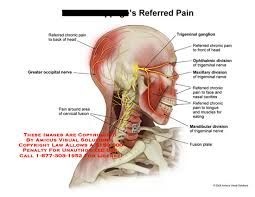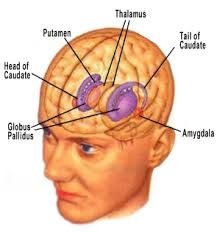Causes severe sharp headache can range from migraine headaches, cluster or tension to a brain tumor. Identify the initial cause can certainly help in treating the condition effectively.
Headache is a condition that is second only to back pain in being one of the most common conditions experienced by people. Mild headache can be caused due to several reasons such as eye irritation, allergies, acidity, etc. However, sharp or stabbing pains in the head are usually a sign of a serious medical condition. Sometimes, this type of headache also experienced when coughing, bending, or have certain types of food, and withstand the daily activities of the person.
Causes and Treatment
Cluster Headaches
Cluster headaches are periodic pain, only experienced on one side of the head. They can occur once or twice a year, and lasts for several days or even weeks. The pain is so severe that people become restless and could not perform daily activities. The exact cause of cluster headaches is unknown, or there is a triggering factor for it.
Treatment
Although there is no cure for cluster headaches, methods of treatment such as oxygen therapy, the use of steroids and drugs, nasal drops, local anesthesia, etc., used to relieve the symptoms. If none of these work, surgery may be recommended by a doctor.
Migraine
Migraine is experienced on one side of the head. Sometimes, the pain was so strong that the person is unable to perform daily activities. In addition to severe headaches, people may also experience other symptoms such as sensitivity to light or sound, nausea, vomiting, loss of vision, hyperactivity, irritability, etc. Migraine is more often observed in women than in men. The pain can be mild or severe, and duration can last from several minutes to several hours.
Treatment
Painkillers and drugs anti-inflammatory may help in treating the symptoms of migraine. Although there is no cure for it, having regular treatment and stay away from the trigger factors may be helpful in treating migraine.
Meningitis
Meningitis is an inflammation of the meninges, the tissues that surround the brain and spinal cord. Meningitis caused by bacterial or viral infections, and can be fatal. A sharp pain around the head and stiff neck are the most common symptoms of meningitis. Additionally, other symptoms such as nausea, vomiting, sensitivity to light, seizures, unconsciousness, loss of appetite, and others, were also observed. Occasionally, complications such as gangrene, septicemia, and increased heart rate can also be observed.
Treatment
Bacterial meningitis is treated with antibiotics and steroids. Viral meningitis is treated with antiviral drugs. Other drugs are also prescribed to relieve other symptoms. Take breaks and drink plenty of fluids is important to treat viral meningitis.
Sinus infection (sinusitis)
Severe pain in the head, behind the eyes or ears, usually caused by sinusitis. Among the various types of sinusitis, sphenoid sinusitis can cause intense headaches, especially at the back of the eye. Meanwhile, the front and ethmoid sinusitis can cause severe pain in the head, behind the ears or eyes. People who suffer from chronic sinusitis experience severe headaches when bent.



Treatment
Antibiotics (in the case of bacterial sinusitis), pain medication, nasal sprays and decongestants, oral steroids, etc., any one of these or a combination, is a method of treatment for sinusitis. Steer clear of allergens is essential to prevent allergic sinusitis.
Inflammation of the brain (encephalitis)
Encephalitis, a rare life-threatening disease, is inflammation of the brain caused by a viral infection. Early symptoms of this condition are similar to the flu. However, other symptoms such as severe headache, nausea, vomiting, convulsions, etc., can be observed later. Encephalitis can lead to death due to respiratory arrest.
Treatment
Anti-virus, anti-inflammatory drugs, corticosteroids, psychotherapy, breaks, etc., is a treatment method that is used to treat encephalitis. Sometimes, anticonvulsants and sedatives may also be prescribed.
Brain tumor
Sudden severe headache attack and sharp, usually without any history, could be a symptom of a brain tumor. A tumor is defined as an uncontrolled cell growth in the brain. As the tumor grows, the pain increases and becomes unbearable. Other symptoms observed were seizures, confusion, or loss of mental alertness, etc. Traumatic brain injury due to any reason can also cause pain in the head.
Treatment
Methods of treatment of brain tumors include surgery, radiation, chemotherapy, and drugs.
Apart from this the main cause, intoxication, withdrawal effects of certain drugs, coital cephalalgia, spinal headache or vascular, hormonal headaches, etc., can also cause severe headaches. Meanwhile, the pain at the back of the head can be caused by stress, mental tension, depression, or improper posture.



